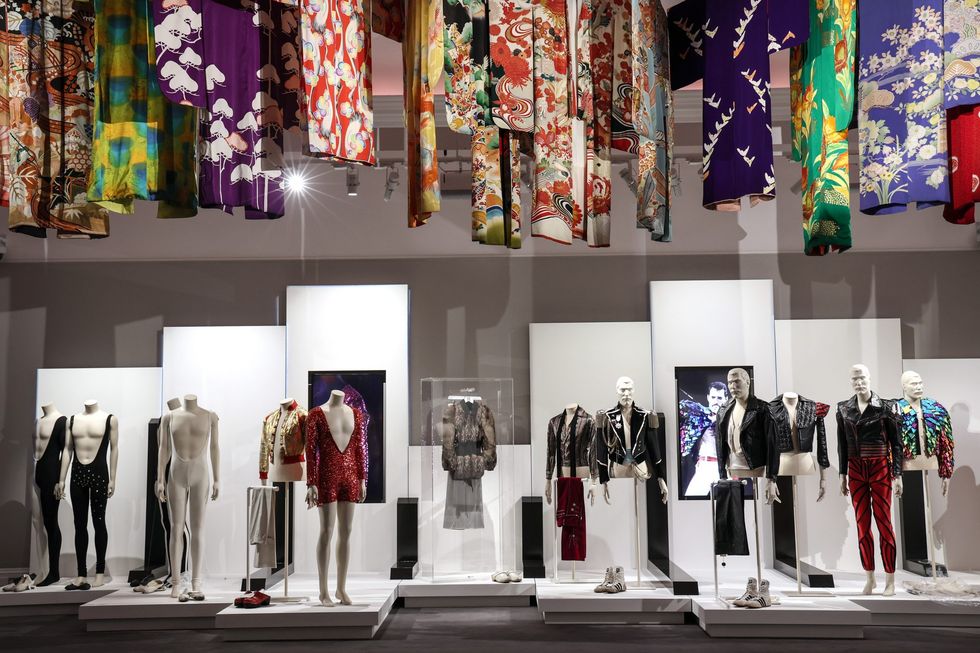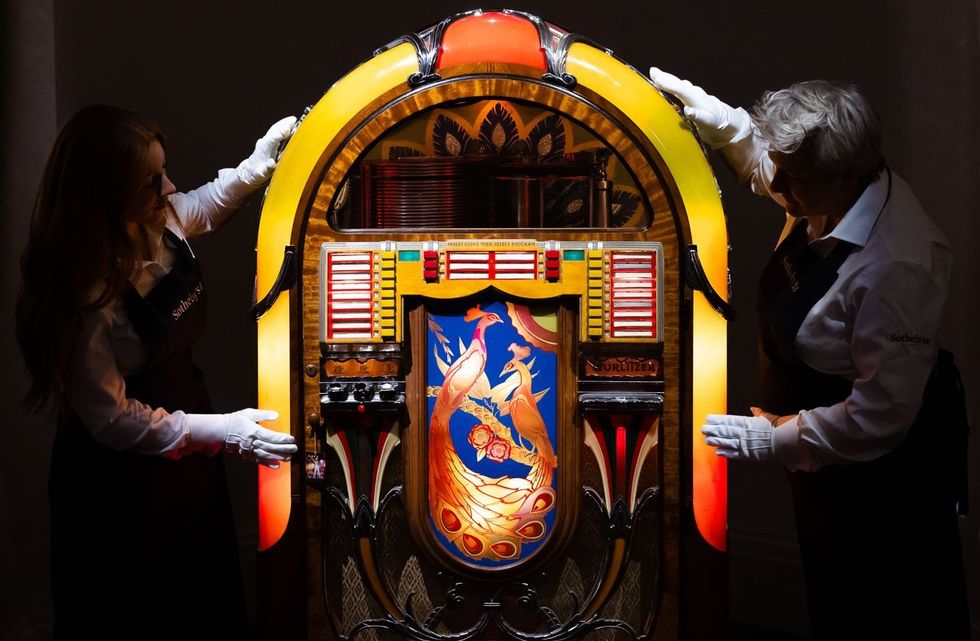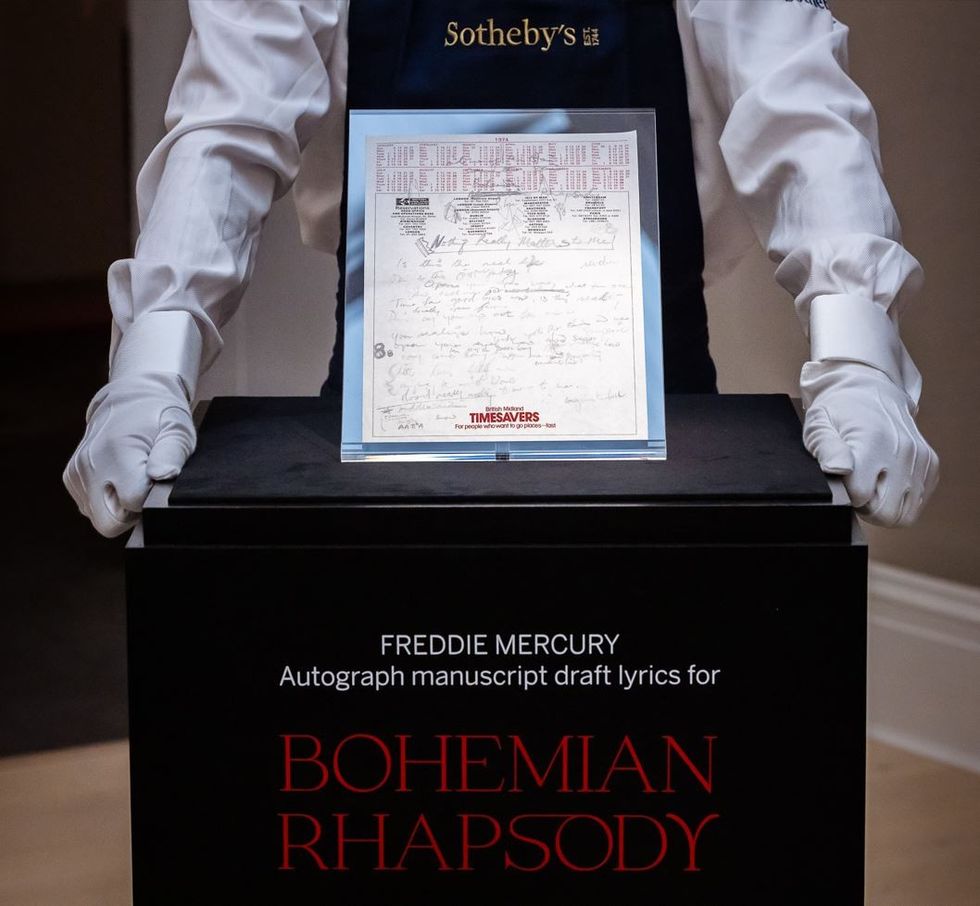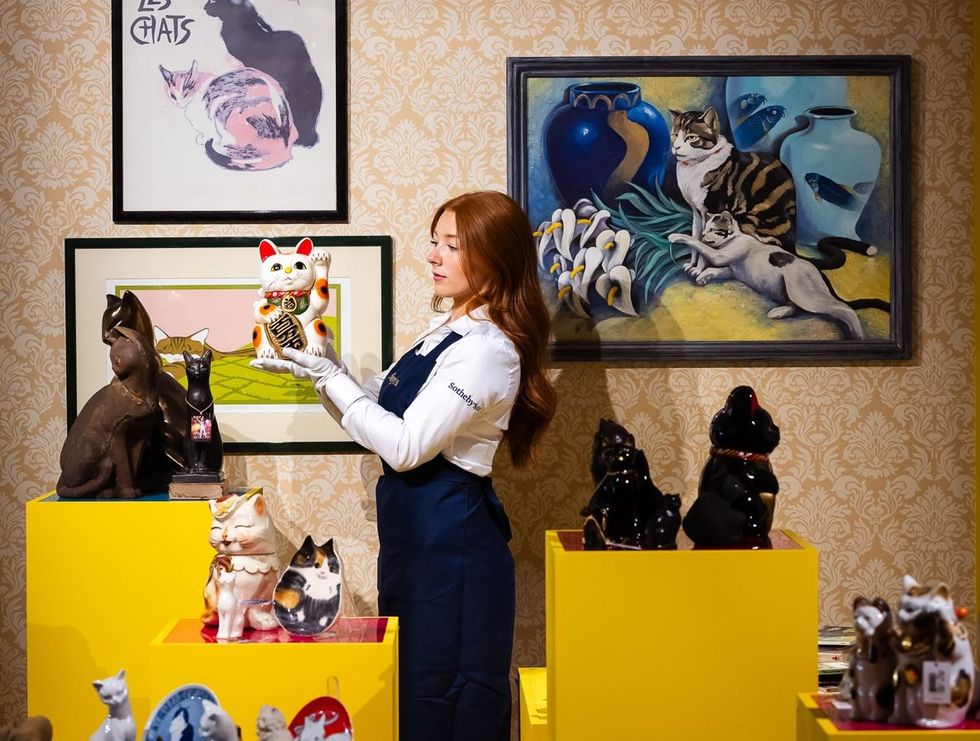FROM fanciful costumes and working drafts of Bohemian Rhapsody to ashtrays and art, hundreds of items Freddie Mercury owned went on show in Britain last Friday (4) before being sold next month.
Sotheby’s has transformed its central London gallery to resemble the Queen frontman’s former home in the city for the month-long exhibition, ahead of its sixstage sale of the more than 1,400 lots.

The singer-songwriter, who died in 1991, had assembled an array of “treasures” which had been left largely untouched at his one-time west London house in the three decades since, according to the auctioneers.
They include a treasured Yamaha baby grand piano, revealed to be among the lots by Sotheby’s last Thursday (3), which Mercury composed numerous hits on. It is estimated to fetch up to £3 million.
The replica of the St Edward’s Crown and an accompanying cloak – in fake fur, red velvet and rhinestones – worn by the star on stage in the 1980s is also on display. He performed in both at the worldfamous Live Aid concert in 1985 and the finale renditions of God Save The Queen during his last tour with the band in 1986.

The 16,000 square feet (1,500 sq m) multi-room showcase, which runs until September 5 – the late singer’s birthday – also features numerous elements from his so-called Japanese collection.
Mercury had collected Japanese decorative arts, glass, graphic arts, ceramics and other objects originating from the country during his life.
“It constitutes an ensemble which is completely unique,” Sotheby’s Cecile Bernard said during an exhibition preview.
Furniture once used at Mercury’s Garden Lodge home also forms part of the Sotheby’s showcase.
A worn kitchen table, ornate cutlery and distinctive crockery hint at the entertainment, and attention to detail, the Queen frontman lavished on his guests.

A gilt-tooled leather-bound “dinner party guest and menu book”, detailing seating plans, menus and refreshments – and annotated with doodles – helps complete the picture.
A multicoloured, illuminated 1941 Wurlitzer jukebox, which Mercury kept in his kitchen and still operates on its original coinage, is another rare item. Loaded with records such as Ray Charles’ Hallelujah I Love Her So, Little Richard’s Rit It Up and Bill Haley’s Shake, Rattle and Roll, it is estimated to net £25,000 at auction.
The musical manuscripts set for display and sale include 15 pages of working drafts for Bohemian Rhapsody, and reveal Mercury initially planned to call the hit Mongolian Rhapsody.
Meanwhile, the contents of his elaborate dressing room also feature, from jackets and sequinned stage suits to shoes to glasses. A yellow “Champion” vest worn for the first half of his final Queen performance at Knebworth Park on August 9, 1986, is among them. Auction valuation: £6,000-£8,000.

A surviving school book with Fred Bulsara – Mercury’s real name – inscribed at the front is among the rarer items.
Dating to the mid-1960s, it features the then 18-year-old’s commentary and judgement on certain poetry, as well as a poem he composed entitled “Bird (‘Feather flutter in the sky...’)”.
The vast array of items - being auctioned by Mary Austin, one of the icon’s closest friends who cared for them at his former home - are expected to fetch at least £6m in total.
Austin will be donating a portion of the proceeds to the Mercury Phoenix Trust - founded by fellow Queen members Brian May, Roger Taylor and their manager Jim Beach to support HIV/Aids initiatives - and to the Elton John Aids Foundation.
For Bernard, helping to curate the exhibition has been a treasured experience itself, as the team tried to place pieces within Mercury’s creative process and journey. “When we went to Garden Lodge... we have been like archaeologists doing that, with so much fun,” she said.
Bernard added the sales - live events in London on September 6-8 and online from last Friday to September 11 - are “the best homage” to Mercury, given he “loved to collect” and buy at auctions. “He was himself very familiar with the process of collections going from one owner to another so it makes sense,” she said.
Some 30,000 to 40,000 items are available within the more than 1,400 lots, according to Sotheby’s cataloguer Fenella Theis. “Every piece is so autobiographical,” she said. “So every piece resembles one of Freddie’s many, many, many facets of his personality.” (AFP)




